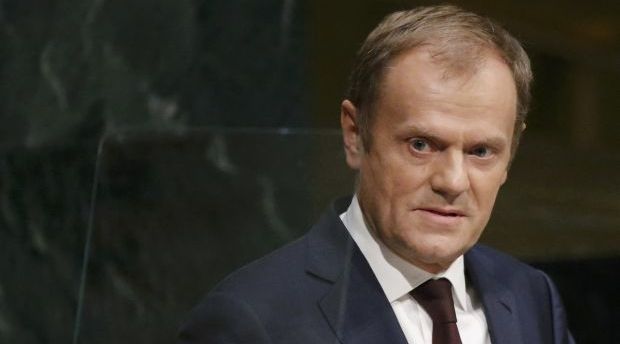
Poland, the Baltic states and others argue that Nord Stream 2 would increase the European Union's dependence on Russia's Gazprom, which already supplies about a third of the bloc's gas. Supporters say it will mean cheaper gas supplies for Europe, Reuters wrote.
"You know that my view about this project is negative," Donald Tusk, a former Polish prime minister who now chairs summits of EU leaders, wrote in a letter seen by Reuters on Thursday.
"It will not serve the best European interest," Tusk said in the letter, addressed to Jean-Claude Juncker, head of the executive European Commission which is preparing to negotiate with Russia on the project.
Read alsoReuters: Gazprom's western partners agree Nord Stream 2 gas pipeline financingOpponents of the pipeline also note that it would bypass Ukraine, thereby harming the interests of the pro-Western government in Kyiv at a time when Russia remains under EU sanctions over its annexation of Ukraine's Crimean peninsula and its support for the self-proclaimed republics in eastern Ukraine.
Gazprom's European partners n the Nord Stream 2 project include Germany's Uniper, Austria's OMV and France's Engie.
Read alsoLithuania joins Ukraine, Poland’s fight against Nord Stream-2The European Commission, comprised of 28 officials, one from each EU state, is working on a proposal for a mandate to launch negotiations with Russia on the pipeline to ensure it meets EU laws.
"I encourage you to be determined in demanding that all our rules stemming from the legal obligations ... as well as our political objectives are applied to this project in full," Tusk said in his letter to Juncker.
In commenting on the letter, which has not been made public, a spokesman for the Commission said on Tuesday Brussels would adhere to the law in handling Nord Stream 2.
Two sources in Brussels said the Commission may approve on Friday the negotiating mandate proposal, which would then have to be endorsed by EU states before any talks with Moscow start.
Two other officials said those countries opposed to the Nord Stream extension were working through their nationally appointed commissioners to make the mandate more demanding.

